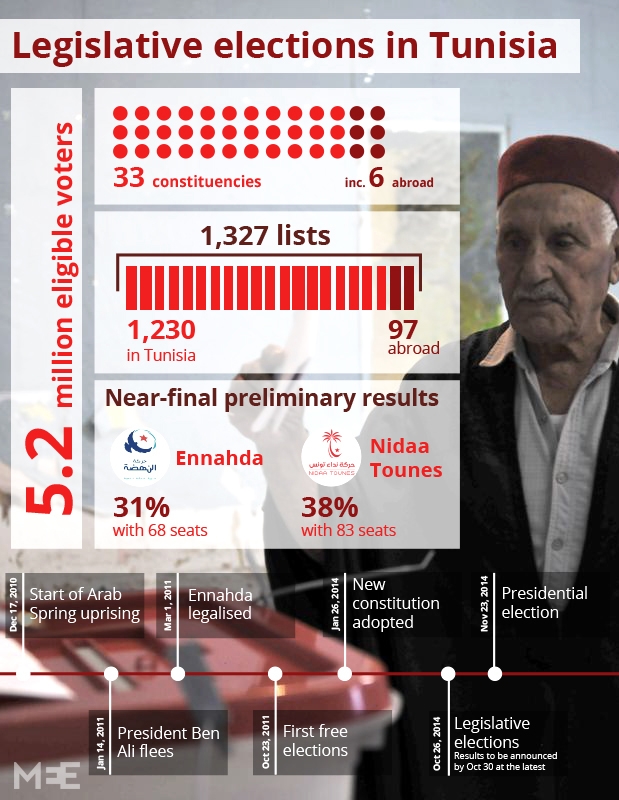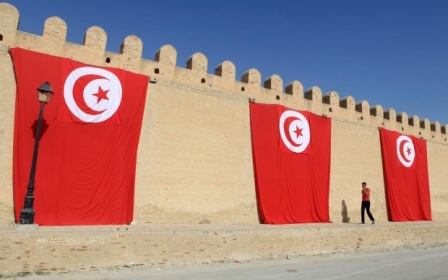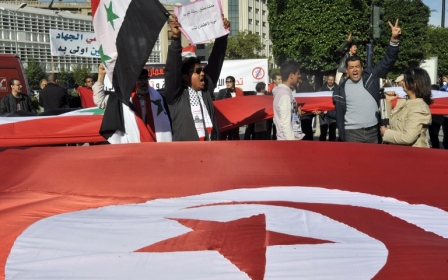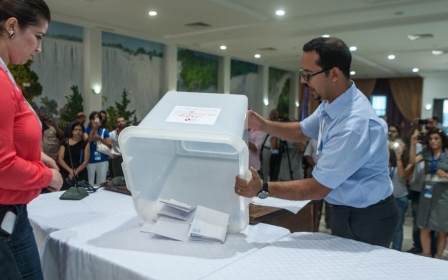Nidaa Tounes tops Tunisian polls in 'near-final' results
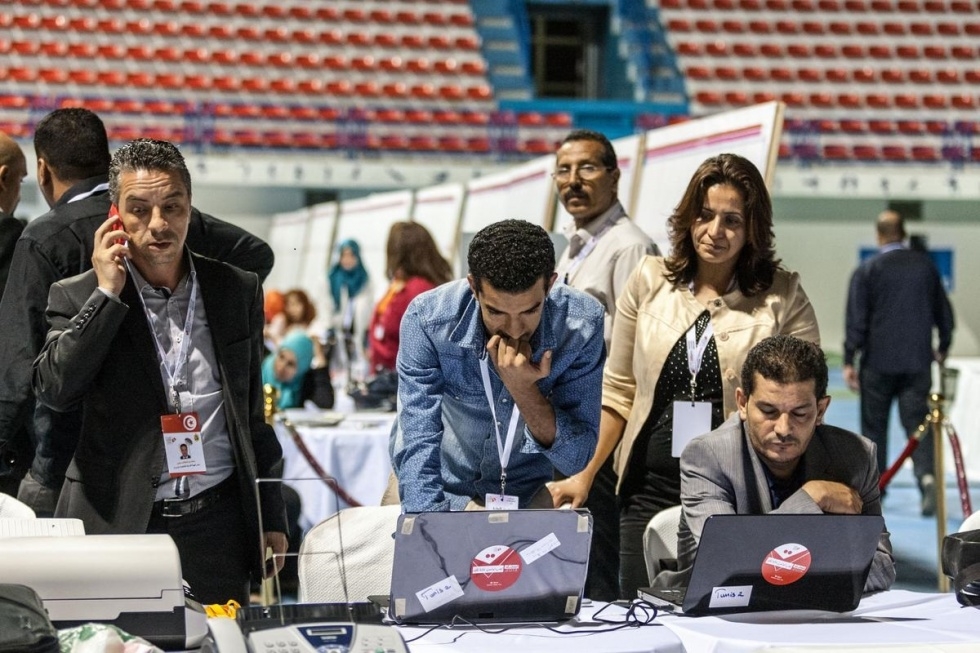
Near-final preliminary results in Tunisia’s election show Nidaa Tounes (Call of Tunisia) ahead with 83 seats and its main rival Ennahda with 68.
The Free Patriotic Union, Popular Front and Afek Tounes 9 are trailing with 17, 12 and 9 respectively.
According to the results of the vote count obtained by Anadolu Agency on Monday, Call of Tunisia won 38 percent of the parliament's 217 seats, while Ennahda came second by 31 percent.
Result updates are expected to be announced later today, although the supervisory ISIE body has until 30 October to announce the final result.
It is now expected that Tunisian President Mohamed Marzouki will ask Call of Tunisia’s leader 87-year-old Beji Caid el Sebsi to form the new government.
Sebsi is a former prime minister who served under former strongman Zine El Abidine Ben Ali, but has since tried to reinvent himself as a steady hand.
The election is only the second time that Tunisians have taken to the polls since Ben Ali was ousted by a popular uprising in 2011.
US President Barack Obama hailed Sunday’s election as "an important milestone in Tunisia's historic political transition".
The head of the EU's election observer mission, Annemie Neyts-Uytterbroeck, also said voting had been "more than satisfactory".
However, the vice-president the Ennahda Movement said some violations were committed earlier in the day, although he stressed that the violations could not affect the final results.
"The electoral process is acceptable despite some violations that were committed during the day," Abdel-Hamid Jelassi said during a conference at the premises of his movement in the Tunisian capital.
He said some people had tried to influence the choices of Tunisian voters, while others sought to pay voters to convince them to select specific candidates.
"We documented some of these violations and sent them to the election body," Jelassi said.
Some small clashes between police and militants were reported in the run-up to the vote but polling day passed without major incident, with some 80,000 security personnel deployed to keep the peace.
Turnout has been estimated at 60 percent, with 75 percent of eligible voters having registered.
Ennahda leader Rashid Ghannouchi, said he was encouraged by long queues at the polling stations, saying this "shows Tunisians are very attached to democracy".
A Presidential election is now scheduled for next month, although Ennahda has proposed the formation of a government of national unity and has not put forward a candidate.
Several analysts and commentators have suggested that it could yet throw its weight behind a presidential hopeful in order to secure political concession and win control of several key ministries.
In the run-up to Sunday's election, Ennahda head Rachid Ghannouchi told AFP he had not ruled out an alliance with Nidaa Tounes.
Nidaa Tounes has presented itself as a secular, nationalist party and promoted a programme of economic stability. Ennahda is linked to the Muslim Brotherhood, although the party grew out of very specific national concerns.
After the 2011 revolution, Ennahda – which had been banned for decades - emerged as the official victor taking 41.47 percent of the vote and 90 of 217 seats in the national assembly tasked with writing a new constitution.
New MEE newsletter: Jerusalem Dispatch
Sign up to get the latest insights and analysis on Israel-Palestine, alongside Turkey Unpacked and other MEE newsletters
Middle East Eye delivers independent and unrivalled coverage and analysis of the Middle East, North Africa and beyond. To learn more about republishing this content and the associated fees, please fill out this form. More about MEE can be found here.


